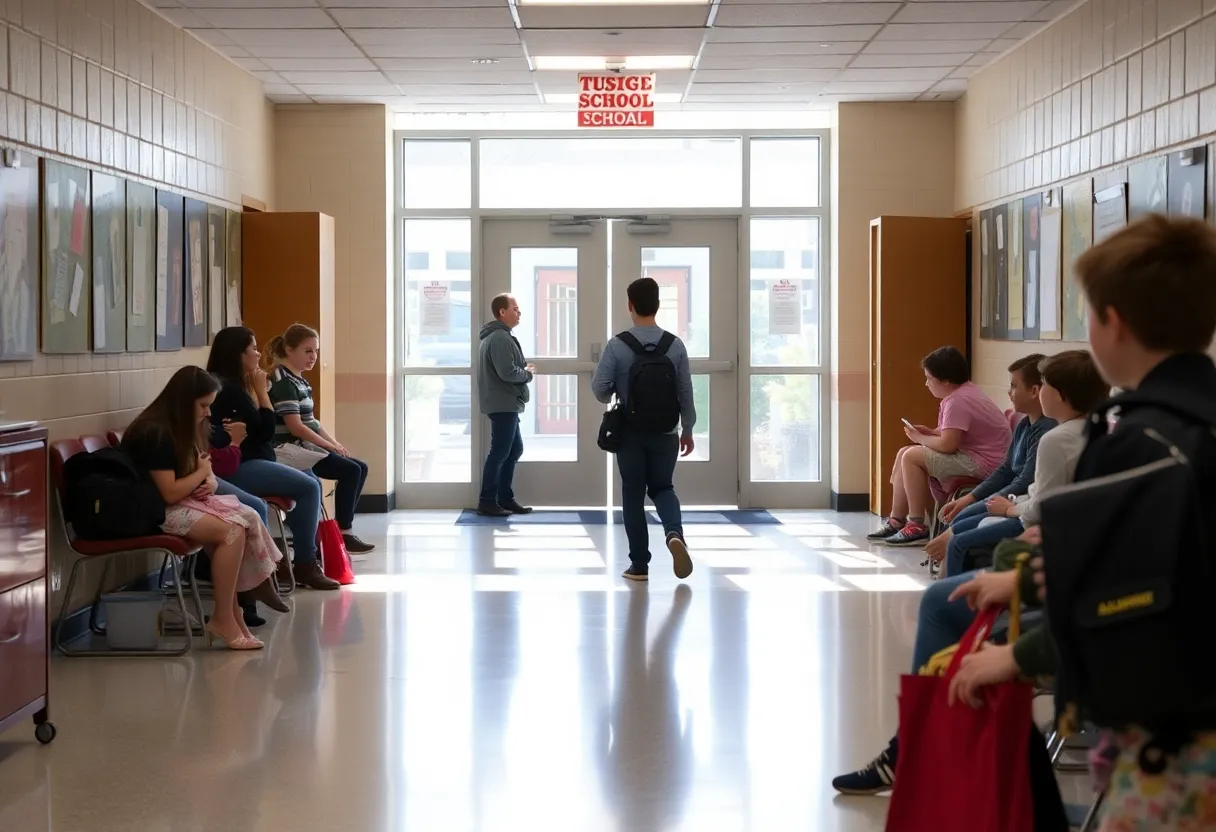News Summary
In Texas, the anticipated reduction in real estate commission fees seems to be fading, as many agents persist with traditional rates of 5% to 6%. Despite hopes for negotiation benefits following a legal settlement intended to reshape commission structures, recent reports reveal agents are retaining their commission practices. This underscores growing concerns about housing affordability, where commission fees substantially impact overall costs for home buyers and sellers. Concurrently, efforts are underway to enhance transparency in the real estate industry to empower consumers in navigating commission negotiations.
Dallas, Texas – Real Estate Commission Optimism Declines
In Texas, the hope for reduced real estate commission fees appears to be dwindling as many agents continue to charge traditional rates of 5% to 6%. This follows a legal settlement from last summer that intended to shift the commission structure in the housing market, allowing for greater negotiation between buyers, sellers, and their agents.
Initially, the settlement raised expectations for potential changes that would benefit home buyers and sellers by lowering costs associated with real estate transactions. New reports have shown, however, that despite these anticipated shifts, agents across the United States are still maintaining their commission practices, effectively dampening the prospects of decreased fees.
Recent findings by media investigations indicate that sellers’ agents have managed to preserve their commission structures through various strategies. These may include using listings or images that suggest commission splits, essentially guiding sellers to adhere to traditional percentages rather than negotiate lower fees.
Challenges also arise for those sellers who choose to market their homes independently. Many have reported difficulties when trying to engage with potential buyers, often encountering agents who subtly veer them away from negotiating deals. A case in point involves an owner of a $2.7 million luxury property who found agents unwilling to discuss commissions below 5%, prompting him to handle the sale on his own.
The Financial Implications of Commission Fees
The implications of these commission fees are significant for many Texans. For instance, a 6% commission on the median home price in Dallas, currently approximately $395,000, translates to a staggering $23,700. This amount can play a pivotal role in the overall affordability of housing in the region, emphasizing the need for a more competitive negotiation environment akin to that seen with other service providers.
Proposed Improvements for Transparency
To strengthen the negotiation process for real estate fees and empower buyers and sellers alike, some advocate for greater transparency within the industry. Recommendations include mandating the disclosure of commissions in dollar amounts within transaction paperwork and providing educational resources to help parties understand that these fees are negotiable.
Affordable Housing Initiatives Amidst Challenges
As the quest for affordable housing continues, Texans are dealing with the dual challenges of high interest rates and housing shortages. In response, new initiatives are being developed, such as a partnership in New Haven with Bob.ai, aiming to accelerate processing times for affordable housing applications through an online portal that connects renters and landlords.
This collaboration seeks to halve the enrollment timeframe for housing assistance programs, thus enhancing access to needed support for individuals facing financial hurdles. However, the integration of artificial intelligence in these processes raises concerns about potential risks, including discrimination and privacy breaches that could affect vulnerable populations.
Dallas Housing Authority’s Efforts
The Dallas Housing Authority is also tackling the affordable housing crisis through programs designed to aid families transitioning from high-poverty neighborhoods to areas with lower poverty rates. This initiative provides financial incentives to landlords willing to participate. However, challenges exist, as many landlords exhibit hesitance to engage with low-income rental programs, often favoring tenants who can afford higher rent.
The combination of high demand for affordable housing and landlords prioritizing more lucrative opportunities presents a complex issue for families relying on assistance. Continuous efforts are being made to effectively communicate and engage both landlords and qualifying families to ensure the success of these programs.
As the Texas real estate landscape remains under scrutiny, it is clear that ongoing efforts are needed to navigate commission rates and housing accessibility. With various stakeholders involved, the path forward must prioritize equitable solutions to support the dream of homeownership for all Texans.
Deeper Dive: News & Info About This Topic
HERE Resources
NexPoint Plans $445 Million Redevelopment in Dallas
Concerns Over DOJ’s Antitrust Case Against RealPage and AI Innovation
Dallas: Luxurious Nimmo Glass House Hits the Market for $8.9 Million
Dallas Luxury Real Estate Market Undergoing Significant Changes
Charming Colonial Home with Guest House Listed at $1.5 Million in Dallas
Arlington Homebuilders Face Market Challenges
South Creek Ranch: Transforming Ferris, Texas
Dallas Police Sergeant Arrested for DWI with Child Passenger
Trey Embrey Recognized as C-Suite Awards Finalist
Concerns Grow Over Bengaluru’s Real Estate Market
Additional Resources
- Yale Daily News: Housing Authority Introduces AI to Automate Voucher Program
- Business Wire: Alabama Coushatta Tribe of Texas Housing Authority Receives Grant
- Candy’s Dirt: Dallas Housing Authority Seeks Landlords for High Opportunity Areas
- Google Search: Affordable Housing Initiatives
- Dallas News: Parks or Affordable Housing – Competing Priorities
- Wikipedia: Affordable Housing

Author: STAFF HERE DALLAS WRITER
The DALLAS STAFF WRITER represents the experienced team at HEREDallas.com, your go-to source for actionable local news and information in Dallas, Dallas County, and beyond. Specializing in "news you can use," we cover essential topics like product reviews for personal and business needs, local business directories, politics, real estate trends, neighborhood insights, and state news affecting the area—with deep expertise drawn from years of dedicated reporting and strong community input, including local press releases and business updates. We deliver top reporting on high-value events such as the State Fair of Texas, Deep Ellum Arts Festival, and Dallas International Film Festival. Our coverage extends to key organizations like the Dallas Regional Chamber and United Way of Metropolitan Dallas, plus leading businesses in telecommunications, aviation, and semiconductors that power the local economy such as AT&T, Southwest Airlines, and Texas Instruments. As part of the broader HERE network, including HEREAustinTX.com, HERECollegeStation.com, HEREHouston.com, and HERESanAntonio.com, we provide comprehensive, credible insights into Texas's dynamic landscape.




